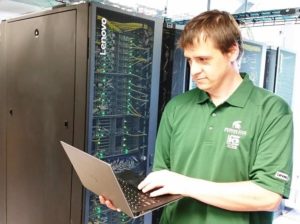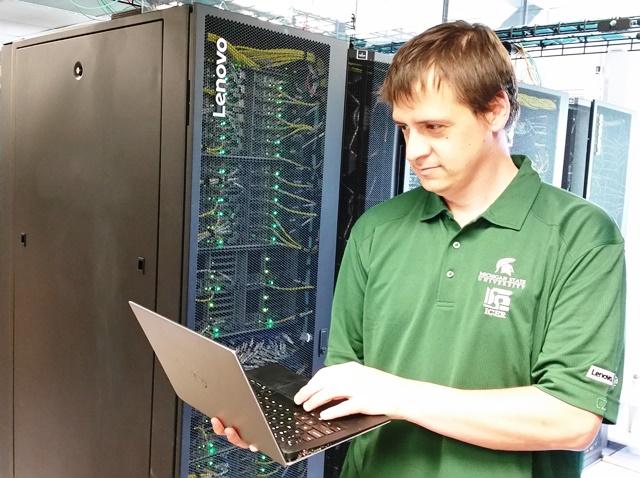
Andy Keen, HPC Administrator, MSU
Michigan State University’s Institute for Cyber-Enabled Research, or iCER, will introduce its newest supercomputing resource at a Cluster Ceremony at 3:30 p.m. June 10.
It’s an exciting time for the computational sciences at MSU,” said iCER Director Kennie Merz. “Our researchers are poised to tackle transformative problems ranging from the discovery of new drugs to understanding the universe we live in.”
The new supercomputer will double the speed with which campus researchers can complete their experiments, and enable iCER to reach out to additional research groups who may benefit from this new resource. Researchers include Bastian Schütrumpf, a research associate of nuclear physics at the Facility of Rare Isotope Beams, who uses the cluster to simulate “nuclear pasta,” a unique phase of nuclear matter formed inside neutron stars; Chris Adami, a professor of microbiology and molecular genetics who builds artificial brains on the cluster to explore the evolution of complex behaviors and intelligence; and Carol Buell in the Department of Agriculture who uses bioinformatics and computational biology analyses to improve our understanding of plant biology.
With the creation of the CMSE Department last year and with the installation of a Top500 supercomputer on campus, the computational sciences at MSU have never been stronger,” said Merz.
iCER provides a solid cyberinfrastructure that connects researchers from academia and industry with advanced computational systems and tools. It supports multidisciplinary research in all facets of computational sciences, and continually works to enhance MSU’s national and international presence and competitive edge in work that requires advanced computing.




